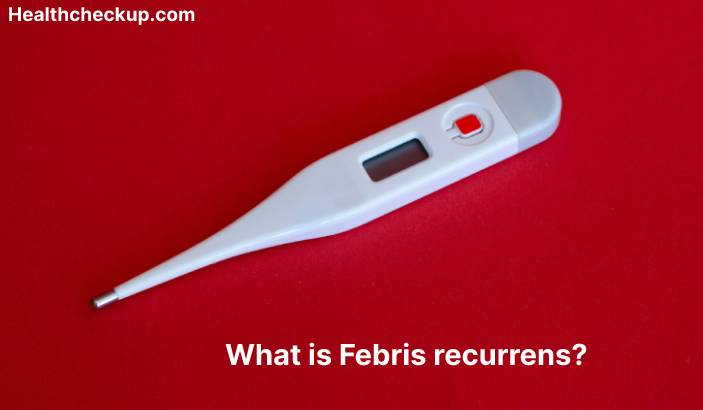Febris recurrens, also known as recurrent fever, is a condition characterized by recurrent episodes of fever. The cause of febris recurrens is often unknown, but it may be due to an underlying medical condition, such as an infection, autoimmune disorder, or cancer. Febris recurrens can range from a mild, self-limited illness to a severe, potentially life-threatening condition.
Symptoms of febris recurrens
Symptoms of febris recurrens include:
- Fever
- Chills
- Sweating
- Headache
- Muscle aches
- Fatigue
Febris recurrens is also accompanied by other symptoms, depending on the underlying cause.
Diagnosis of febris recurrens
Febris recurrens is typically diagnosed based on the presence of recurrent episodes of fever and a thorough medical history and physical examination. Laboratory testing, such as blood tests and imaging studies, is also be used to help identify the underlying cause of the febrile episodes.
Treatment of febris recurrens
Treatment for febris recurrens will depend on the underlying cause of the fever. If an infection is the cause, treatment includes antibiotics. If an autoimmune disorder or cancer is the cause, treatment includes medications to manage the underlying condition. In severe cases, hospitalization may be necessary to provide supportive care, such as fluids and electrolytes.
Prevention of febris recurrens
There are no specific measures that can be taken to prevent febris recurrens. However, practicing good hygiene, such as washing hands regularly and avoiding close contact with individuals who are sick, can help to reduce the risk of infection.
It is important to seek medical attention if you experience recurrent episodes of fever, as early diagnosis and treatment helps to prevent complications. Your healthcare provider will work with you to determine the cause of the fever and develop a treatment plan.








